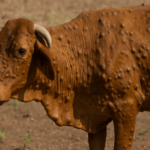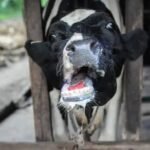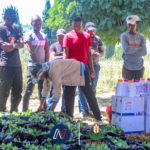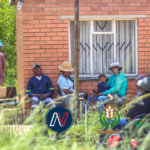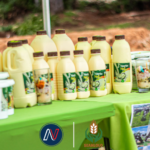…865 stolen in April alone
By Ntsoaki Motaung and Relebohile Makhetha
The country’s rural economy is bleeding as stock theft surges, leaving farmers devastated and communities at risk.
At the heart of this growing crisis lies a broken livestock identification system marked by equipment shortages, low coverage, and slow service delivery.
In April 2025 alone, the Lesotho Mounted Police Service (LMPS) reported a staggering 865 animals stolen across the country.
Police reported to have managed to recover 531—just over 60%—but the figures still paint a grim picture for the nation’s livestock agricultural sector.
LMPS Breakdown of April 2025 Livestock Theft Cases:
- Cows: 189 stolen | 128 recovered
- Horses: 32 stolen | 18 recovered
- Donkeys: 58 stolen | 12 recovered
- Sheep: 555 stolen | 339 recovered
- Goats: 60 stolen | 33 recovered
- Pigs: 1 stolen | 1 recovered
Thirty-eight suspects were arrested in connection with these crimes. Of those, 11 have been convicted, five cases remain before the courts, and 22 are still under investigation.
While these numbers alarm farmers, they also spotlight a deeper systemic issue: a livestock branding system unable to keep pace with the demands of rural communities and the threat posed by cross-border rustling.
Livestock branding, or tattooing in the case of small stock, has long been Lesotho’s frontline defence against animal theft, Director of Livestock Branding, Pitso Ramokoatsi, said.
He explained that the system is designed to identify ownership, deter illegal sales, and track cross-border movements. However, he noted that delays, dysfunction, and resistance among some livestock owners have weakened its effectiveness.
Ramokoatsi revealed that the government has branded over 1.7 million livestock nationally to date.
Branding, he added, acts as both a deterrent and a recovery tool making it harder for criminals to sell stolen animals, especially in South Africa, where proof of ownership is now routinely required at sales.
“Branding helps recover stolen animals and curbs illegal trade. It gives farmers security, particularly those whose livelihoods depend entirely on livestock farming,” he said.
Ramokoatsi points to equipment shortages, staffing inconsistencies, and non-cooperation from certain livestock owners as serious hurdles.
Some owners, he claims, intentionally avoid branding their animals, either out of mistrust, fear of errors by temporary workers, or because they may be complicit in stock theft networks themselves.
The situation came under sharp political focus on May 22, 2025, when Peka Member of Parliament (MP) M. Mpobole raised the issue in Parliament.
Mpobole revealed that livestock tattooing services have not been available in her constituency since 2018.
“This gap has left entire villages vulnerable to cross-border theft where unmarked Basotho cattle are quickly branded and absorbed into South African markets.”
“In Ha Maphutse, we once had 16 cattle kraals. Today, only two remain. The rest have been emptied by thieves and all is due to lack of access to branding,” she said.
Mpobole proposed a community-led solution where farmers procure their own tattooing irons and the government supplies the fuel. But her suggestion has stalled in bureaucratic bottlenecks.
Responding on behalf of the Ministry of Local Government, Chieftainship, Home Affairs and Police, Public Service Minister Stephen Mputi confirmed that 11,148 animals had been tattooed so far, including 954 large stock and 10,194 small stock. However, he admitted that progress in regions like Peka has been severely limited.
“One of our biggest challenges is that while farmers register their livestock, they fail to present them when mobile branding teams arrive,” Mputi said.
He also dismissed the idea of privately owned branding tools, citing risks of fraud and unauthorised livestock sales.
The inability to brand animals consistently has created fertile ground for theft and with porous borders, criminal syndicates on the rise, MP Mohau Hlalele of Thaba Phechela charged, arguing that livestock tattooing should now be declared a national emergency.
“Basotho are losing not just cattle, but their dignity and ability to survive. The loopholes in our system are leaving communities vulnerable and at the mercy of thieves. This issue should now be declared an emergency,” Hlalele said.
Meanwhile, awareness campaigns have helped shift public perception, Ramokoatsi said, noting that more livestock owners now appreciate branding’s value, especially as it is increasingly required for insurance, veterinary services, and export purposes.
Yet he stressed that even with public support, the system cannot function without the basics: working tools, trained personnel, and consistent government support.
In Lesotho’s agriculture according to different reports, livestock is not just wealth for the rural population, but it is food security, school fees, emergency cash, and intergenerational inheritance.

